- Home
- Graham McNeill
Priests of Mars Page 18
Priests of Mars Read online
Page 18
‘Soldiers like to be around lucky types,’ said Roboute, seeing Linya take notice of Emil’s skills.
‘I thought we established that there is no such thing as luck,’ she said.
‘Tell that to a soldier and he’ll tell you you’re wrong,’ said Roboute, pushing himself out of his seat with a grunt of satisfaction. ‘Every one of them will have their own lucky talisman, lucky ritual or lucky prayer. And you know what, if that’s what keeps them alive, then who’s to say they’re not absolutely right?’
‘Confirmation bias,’ said Linya, ‘but I will concede that the battlefield is a place where the sheer number of random variables in a chaotic environment are fertile arenas for the perception of luck.’
‘There’s no telling some folk,’ he said as the servitors opened the grand doors to the anteroom and the dinner guests began to file out.
Linya shrugged. ‘I deal in facts, reality and that which can be proved to have a basis in fact.’
‘Doesn’t that rob you of the beauty of things? Doesn’t a planetary aurora lose its magic when you can reduce it to light and radiation passing through thermocline layers of atmospheric pollution? Isn’t a magnificent sunset just the daily cycle instead of a wondrous symphony of colour and peace?’
‘On the contrary,’ said Linya as they made their way from the dinner table. ‘It’s precisely because I understand the workings of such things that they become magical. To seek mysteries and render them known, that is the ultimate goal of the Adeptus Mechanicus. To me, that is magical. And I mean magical in a purely poetic sense, before you go attaching meaning to that.’
‘I wouldn’t dare,’ smiled Roboute as they reached the doors leading to the starboard esplanade. A bell chimed, and Roboute realised with a start that four hours had passed since their arrival.
‘It’s later than I thought,’ he said.
‘It is precisely the time I expected,’ said Linya. ‘My internal clock is synchronised with the Speranza, though it has some unusual ideas concerning the relativistic flow of sidereal time.’
Roboute shrugged. ‘I’ll take your word for it.’ he said, watching the way the dimmed lighting played on the sculpted sweeps of her cheekbones. He’d thought she was attractive before, but now she was beautiful. How had he not noticed that? Roboute was aware of the alcohol in his system, but the filter in his artificial liver was already dissipating the worst of it.
‘You are a very beautiful woman, Linya Tychon, did you know that?’ he said before he even knew what he was doing.
The smile fell from her face, and Roboute knew he’d crossed a line.
‘I’m sorry,’ he said. ‘That was foolish of me. Too much dammassine...’
‘It is very kind of you to say so, Captain Surcouf, but it would be unwise for you to harbour any thoughts of a romantic attachment to me. You like me, I can already see that, but I cannot reciprocate anything of that nature.’
‘How do you know unless you try?’ said Roboute, already knowing it was hopeless, but never one to give up until the last.
‘It will be hard for you to understand.’
‘I can try.’
She sighed. ‘The neural pathways of my brain have been reshaped by surgical augmetics, chemical conditioning and cognitive remapping to such an extent that the processes taking place within my mindscape do not equate to anything you might recognise as affection or love.’
‘You love your father, don’t you?’
She hesitated before answering. ‘Only in the sense that I am grateful to him for giving me life, yes, but it is not love as you would recognise it. My mind is incapable of reducing the complex asymmetry of my synapse interaction to something so...’
‘Human?’
‘Irrational,’ said Linya. ‘Roboute, you are a man of varied history, much of which clearly holds great appeal to other humans. You have personality matrices that I am sure make you an interesting person, but not to me. I can see through you and study every facet of your life from the cellular level to the hominid-architecture of your brain. Your life is laid bare to me from birth to this moment, and I can process every angle of that existence in a microsecond. You divert me, but no unaugmented human has enough complexity to ever hold my attention for long.’
Roboute listened to her speak with a growing sense that he was wading in treacherous waters. He’d made the mistake of assuming that just because Linya Tychon looked like a woman that she was a woman in any sense that he understood. She was as far removed from his sphere of existence as he was from a domesticated house-pet.
It was a sobering realisation, and he said, ‘That must be a lonely existence.’
‘Entirely the opposite,’ said Linya. ‘I say these things not to hurt you, Roboute, only to spare you any emotional turmoil you might experience in trying and failing to win my affection.’
Roboute held up his hands and said, ‘Fair enough, I understand, affection isn’t on the cards, but friendship? Is that a concept you can... process? Can we be friends?’
She smiled. ‘I’d like that. Now, if you will excuse me, I have some data inloads that need parsing into their logical syntactic components.’
‘Then I’ll say goodnight,’ said Roboute, holding out his hand.
Linya shook it, her grip firm and smooth.
‘Goodnight, Roboute,’ she said, turning and making her way towards the mag-lev rostrum.
Emil and Adara appeared behind him, flushed with rich food and plentiful dammassine. Adara spun his returned blade back and forth between his fingers, which seemed reckless given the amount he’d had to drink.
‘What was that all about?’ asked Emil.
‘Nothing, as it turns out,’ said Roboute.
Microcontent 11
They wandered through the outer spiral arm of the galactic fringe, like travellers in an enchanted forest, bewitched by the beauty all around them. The astrogation chamber was alive with light. Sector maps, elliptical system diagrams, and glittering dust clouds orbited Linya and her father like shoals of impossibly complex atomic structures. Each was a delicately wrought arrangement of stars and nebulae, and Linya reached up to magnify the outer edges of a system on their projected course.
‘Is that a discarded waypoint?’ asked her father, his multiple fingers drawing streamers of data from the rotating planets like ejected matter from the surface of a sun.
‘Yes,’ said Linya. ‘The Necris system.’
‘Of course, a system-world of the Adeptus Astartes.’
‘So the rumours go,’ agreed Linya. ‘The Marines Exemplar Chapter are said to have their fortress-monastery in this system, but that has never been confirmed with a high enough degree of accuracy for me to add a notation.’
‘The Space Marines do like their privacy,’ said her father, quickly moving on through the visual representation of the Necris system as though to respect the secretive Chapter’s wishes.
Linya nodded, sparing a last look at the system’s isolated planets as they spun in their silent orbits. Some looked lonely, far from the life-giving sun, cold and blue with ice; while others whose orbits had carried them too far from the star’s gravitational push and pull to remain geologically active were no more than barren ochre deserts.
The fleet’s first waypoint had been reached when the Speranza broke from the warp on the edge of the Heracles subsector, its myriad surveyors gulping fresh datum information from the local environment and feeding it into their course plot. The Necris system had been considered and then rejected as a waypoint, its Mandeville point too restricted in its arc of compliant onward warp routes.
And it did not have the pleasing symmetry of taking the fleet through Valette.
The chamber in which they stood was a dome of polished iron a hundred metres wide, machined from a single vast ingot on Olympus Mons and lined with slender pilasters of gold like the flying buttresses supporting a great templum. A wooden-framed console with a series of haptic keyboards and manual rotation levers stood at the centre of the d
ome’s acid-etched floor image of the Icon Mechanicus. A host of code wafers jutted from the console’s battered keypad, each a portion of data extracted from the Speranza’s astrogation logisters.
Entoptic machines held fast to exacting tolerances by a precise modulation of suspensor fields projected light into the air in such volume that it was like walking through an aquarium and hothouse combined. Celestial bodies slipped past like stoic feeder fish, comets like darting insects and ghostly clouds of gas and dust like drifting jellyfish. The Speranza’s course was marked in a shimmering red line, though only the real space portions of the journey were marked. To map the churning depths of the warp was a job best left to the Navigators, if such a thing were even possible.
‘Your course plot was commendably accurate, my dear,’ said her father, watching as yet more information streamed into her ongoing equations. ‘I am no hexamath, but I think the archmagos is pleased.’
Linya felt his pride in the warm emanations from his floodstream and sent a wordless response that acknowledged his satisfaction.
‘The course has proved accurate to within one light minute,’ she said. ‘The new celestial data will only improve that as the journey continues.’
‘At least until we drop out of the warp at the Halo Scar,’ her father reminded her.
‘I know, but when we reach Valette, we’ll have a better... estimate of what we might expect to see.’
‘You were going to say “guess”, weren’t you?’
‘I considered it, but decided that would imply too great a margin of uncertainty.’
‘Where we are going is shrouded in uncertainty, daughter dearest,’ said Vitali. ‘There is no shame in ignorance, only in denying it. By knowing what we do not know, we can take steps to remedy our lack of knowledge.’
Vitali Tychon moved through the shoals of stellar information with the ease of a man who had lived his life in the study of the heavens. His arms moved like a virtuoso conductor, sifting the flow of information with familiarity and paternal satisfaction, as though each star and system were his own. He made a circuit along the circumference of the chamber; moving through regions of space where the light of stars was spread out, little more than relativistic smears, to the systems closer to the galactic core.
He approached the chamber’s representation of the Halo Scar as it rippled and flickered out of focus, as though the projectors were having difficulty in interpreting the mutant data they were being fed. The machines fizzed and spat coils of hissing code into the air, angry at being forced to visualise so disfigured a region of space. Bleeds of red and purple bruising, striated with leprous yellow and green, spread like an infection along the edge of the galaxy, a swathe of starfields that made no empirical sense. The projected information flickered and faded for a moment, before refreshing with a buzz of circuitry and the persistent hum of agitated machinery.
‘The spirits are restless today,’ said Linya.
‘Wouldn’t you be?’ said Vitali, reaching out to touch the wall and send a soothing binaric prayer into the wired heart of the machinery. ‘The mapping spirits of the chamber are vexed by the inconstant streams of information being relayed to them. Travelling through the warp allows for no satisfaction of their cartographic urges, and like any of us denied our purpose, they do not take kindly to disruption of their routines.’
‘They recognise a familiar soul in you,’ said Linya, as the images of distant sectors and shimmering stars grew brighter and clearer. The machines’ irritated fizzing diminished.
‘I have an affinity with spirits that seek the sights of far-off shores,’ said Vitali without any hint of modesty. ‘As do you.’
Linya knew she lacked her father’s touch, but appreciated the sentiment nonetheless.
‘Such a shame,’ said Vitali as he returned his gaze to the leering gash of the Halo Scar. ‘Once it was a celestial nursery of youthful and adolescent stars. Now it is little more than a graveyard of spent matter, dying cores compressing to singularities and aberrant data that makes as little sense here as it did at Quatria.’
‘Even the astronomical data the Speranza inloaded at the last waypoint did little to codify our understanding of what it is,’ observed Linya.
‘Understandable,’ said Vitali, pulling a cascade of data from the air. ‘The gravity fluxions caused by the interactions of so many hyper-aged stars make a mockery of our instrumentation. If these readings are to be believed, then there are forces at play within the Halo Scar that could tear this ship apart in a heartbeat.’
‘I am optimistic that the Valette waypoint will provide a clearer fix on these corpse-stars and the volatile spaces between them. Perhaps we might even be able to plot a course through the gravitational mire.’
Her father turned from the Halo Scar and said, ‘What gives you cause for such optimism?’
Linya hesitated before answering, though she suspected her father already knew what her answer would be. ‘The Valette Manifold station was the last known point of contact with the lost fleet of Magos Telok. It is not unreasonable to presume there is a reason this system was able to receive a Manifold transmission from Telok’s fleet. Perhaps it lies in a corridor where the gravitational fields annul one another. I cannot accept it was an accident that Valette lies precisely on our optimal route to the Halo Scar. I believe the will of the Omnissiah has brought us here, father.’
‘Have you considered that you may be as much a victim of confirmation bias as those without augmentation?’
‘Yes, but I have dismissed the possibility. The chances of Valette lying on our projected flight path from Joura is infinitesimal given the sheer volume of potential routes, elliptical irregularities in its orbit and the system’s axiomatic volatility.’
‘I agree,’ said Vitali. ‘And I must say that I am rather looking forward to inloading the data streams from a Mechanicus Manifold station this close to the Scar. Who knows what information they might have accumulated in the last few hundred years?’
A shiver of data-light passed along the conduits of the floor as a rotating cog-door opened on the wall behind Linya; bright veils of biographical information, operational status and current inload/exload data burden rose from the floor.
Tarkis Blaylock swept into the astrogation dome, and his inload burden immediately spiked as he drank in the liquid data that surrounded him. He directed the appropriate code blurts of greeting to both Linya and her father. Perfunctory, but she expected no less. Though the mores and modes of address were utterly removed from unaugmented individuals, many of the same cues existed – albeit on a binary level – to convey the subtlest hints of reproach, approbation or, in this case, carefully masked disdain.
‘Magos Blaylock,’ said Vitali, employing a rustic form of binaric protocols that had fallen out of use with the rediscovery of high-function lingua-technis nearly five thousand years ago. ‘A pleasure to see you, as always. What brings you to the astrogation dome?’
‘A matter that would be best discussed in private,’ said Blaylock, pointedly ignoring Linya.
‘Whatever you would say to me in private, I will only later relay to my daughter,’ said Vitali, scrolling through the system data of the Ketheria system. ‘Therefore, in the interests of brevity and the better employment of our time, I suggest you simply say what it is you have come to say.’
‘Very well,’ said Blaylock, moving deeper into the chamber and turning his green-hued optics to its upper segmentae, where the mysterious reaches of far-off galaxies spun like misty spiderwebs. ‘I have come to seek your support.’
‘Support for what?’ asked Vitali.
‘Support for my claims upon Archmagos Kotov’s Martian forges when they are redistributed.’
‘Isn’t that a little premature?’ asked Linya. ‘We haven’t even reached the edge of the galaxy and you speak like this expedition has already failed.’
‘The expedition was always statistically unlikely to succeed,’ said Blaylock, turning a full circle and scanning the c
ontents of the pellucid star systems. ‘Nothing has changed. The most likely outcome of this voyage is that the Halo Scar will prove to be impenetrable and Archmagos Kotov will be forced to return to Mars in failure.’
‘If you were so sure this expedition would fail why did you come?’
‘The Fabricator General himself seconded me to Archmagos Kotov,’ said Blaylock, his lingua-technis making sure they understood the full weight of the authority vested in him. ‘To lose so important a vessel as the Speranza on a fool’s errand into a region of cursed space would be unforgivable. I am to see that this vessel is not needlessly sacrificed on the altar of one man’s desperation to regain his former glory.’
‘How very noble of you,’ said Linya, not even bothering to mask her contempt.
‘Indeed,’ replied Blaylock, ignoring her jibe.
‘And when Kotov returns with his tail between his legs, there will be a feeding frenzy to claim his last remaining holdings,’ said Vitali. ‘You think they should go to you?’
‘I am the most suited to take control of his Tharsis forges,’ agreed Blaylock.
‘A suspicious man might say you have a vested interest in the expedition failing,’ said Vitali.
‘A human assumption, but a fallacious one. I will fully support Arch-magos Kotov until such time as I believe that the chance of irredeemable damage to the Speranza outweighs the possibility of any useful recovery of knowledge. Since the latter is the most likely outcome, it is logical for me seek the support of senior magi prior to our return to Mars. You are aware of my high standing in the Priesthood, and I should not forget such support when the time comes to consider requisition requests. There is a great deal of technology on Mars that I could see allocated to Quatria to make it the foremost cartographae gallery in the Imperium.’
‘First you attempt to veto my father’s appointment to this expedition and now you try to buy him off with transparent bribes?’ said Linya, resorting to her flesh voice to truly discomfit Blaylock.

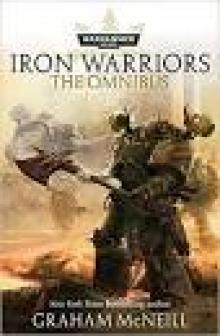 Iron Warriors - The Omnibus
Iron Warriors - The Omnibus Old Wounds, New Scars
Old Wounds, New Scars The Colonel's Monograph
The Colonel's Monograph Ursuns Teeth
Ursuns Teeth The Ambassador
The Ambassador![[Ultramarines 5] Courage and Honour - Graham McNeill Read online](http://i1.bookreadfree.com/i/03/12/[ultramarines_5]_courage_and_honour_-_graham_mcneill_preview.jpg) [Ultramarines 5] Courage and Honour - Graham McNeill
[Ultramarines 5] Courage and Honour - Graham McNeill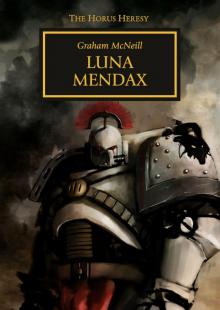 28a Luna Mendax
28a Luna Mendax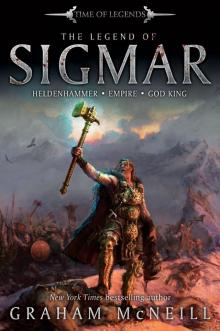 The Legend of Sigmar
The Legend of Sigmar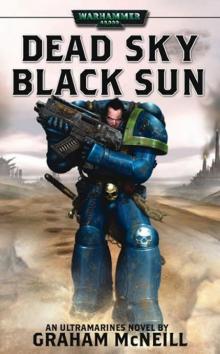 Warhammer - Ultramarines 03 - Dead Sky, Black Sun (McNeill, Graham)
Warhammer - Ultramarines 03 - Dead Sky, Black Sun (McNeill, Graham)![Warhammer - [The Ambassador Chronicles 01] - The Ambassador Read online](http://i1.bookreadfree.com/i/03/17/warhammer_-_[the_ambassador_chronicles_01]_-_the_ambassador_preview.jpg) Warhammer - [The Ambassador Chronicles 01] - The Ambassador
Warhammer - [The Ambassador Chronicles 01] - The Ambassador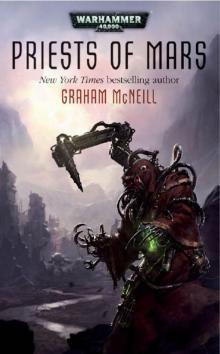 Priests of Mars
Priests of Mars Vengeful Spirit
Vengeful Spirit![[Sigmar 03] - God King Read online](http://i1.bookreadfree.com/i/03/13/[sigmar_03]_-_god_king_preview.jpg) [Sigmar 03] - God King
[Sigmar 03] - God King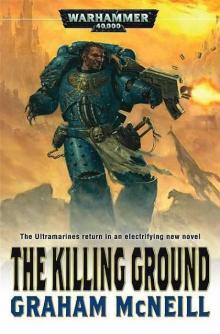 The Killing Ground
The Killing Ground The Ambassador Chronicles
The Ambassador Chronicles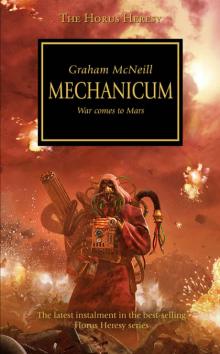 Mechanicum
Mechanicum![[Ulthuan 02] - Sons of Ellyrion Read online](http://i1.bookreadfree.com/i/03/14/[ulthuan_02]_-_sons_of_ellyrion_preview.jpg) [Ulthuan 02] - Sons of Ellyrion
[Ulthuan 02] - Sons of Ellyrion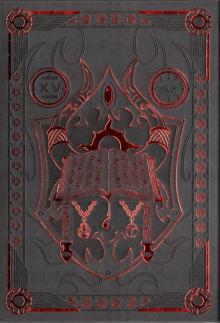 Magnus the Red: Master of Prospero
Magnus the Red: Master of Prospero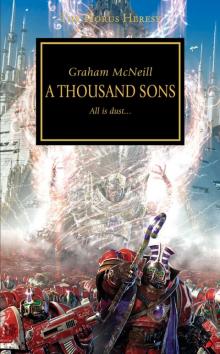 A Thousand Sons
A Thousand Sons![[Warhammer] - Guardians of the Forest Read online](http://i1.bookreadfree.com/i/03/18/[warhammer]_-_guardians_of_the_forest_preview.jpg) [Warhammer] - Guardians of the Forest
[Warhammer] - Guardians of the Forest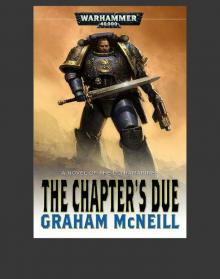 The Chapters Due
The Chapters Due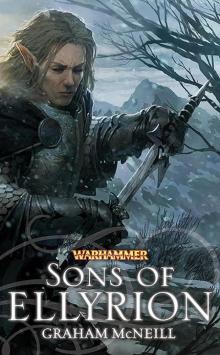 02 - Sons of Ellyrion
02 - Sons of Ellyrion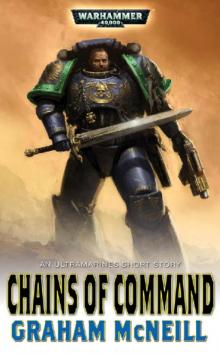 Chains Of Command
Chains Of Command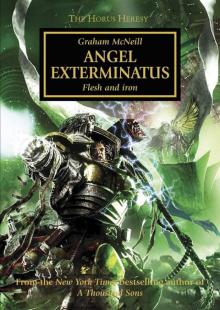 Angel Exterminatus
Angel Exterminatus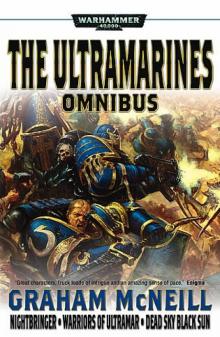 The Ultramarines Omnibus
The Ultramarines Omnibus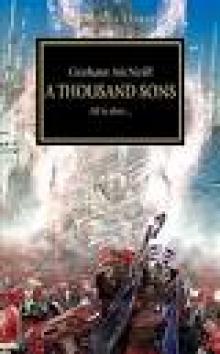 X Marks da Spot
X Marks da Spot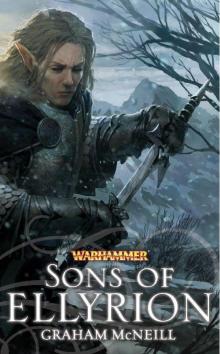 Sons of Ellyrion
Sons of Ellyrion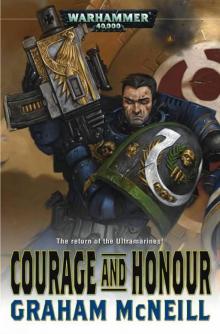 Courage And Honour
Courage And Honour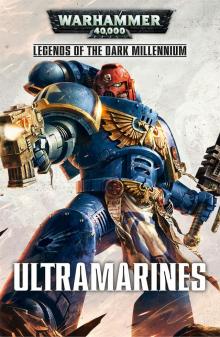 Ultramarines
Ultramarines![[Ulthuan 01] - Defenders of Ulthuan Read online](http://i1.bookreadfree.com/i/03/16/[ulthuan_01]_-_defenders_of_ulthuan_preview.jpg) [Ulthuan 01] - Defenders of Ulthuan
[Ulthuan 01] - Defenders of Ulthuan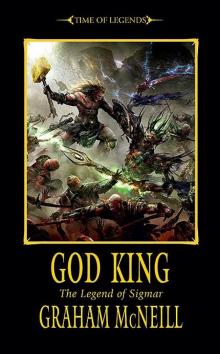 03 - God King
03 - God King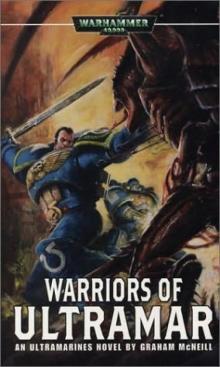 Warhammer - Ultramarines 02 - Warriors Of Ultramar (McNeill, Graham)
Warhammer - Ultramarines 02 - Warriors Of Ultramar (McNeill, Graham)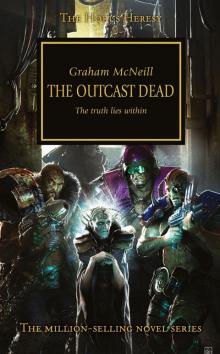 The Outcast Dead
The Outcast Dead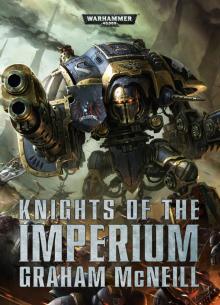 Knights of the Imperium
Knights of the Imperium Defenders of Ulthuan
Defenders of Ulthuan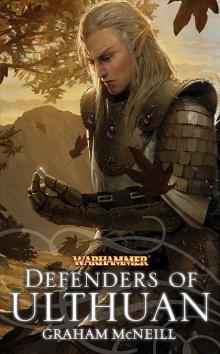 01 - Defenders of Ulthuan
01 - Defenders of Ulthuan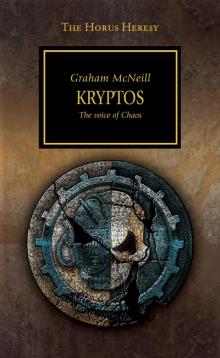 Kryptos
Kryptos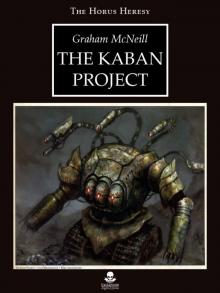 The Kaban Project
The Kaban Project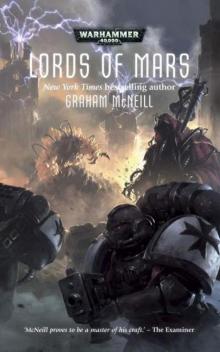 Lords of Mars
Lords of Mars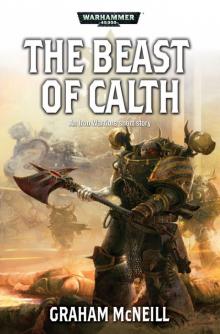 The Beast of Calth
The Beast of Calth Ghouls of the Miskatonic (The Dark Waters Trilogy)
Ghouls of the Miskatonic (The Dark Waters Trilogy)![[Sigmar 01] - Heldenhammer Read online](http://i1.bookreadfree.com/i/03/24/[sigmar_01]_-_heldenhammer_preview.jpg) [Sigmar 01] - Heldenhammer
[Sigmar 01] - Heldenhammer The Enemy Of My Enemy
The Enemy Of My Enemy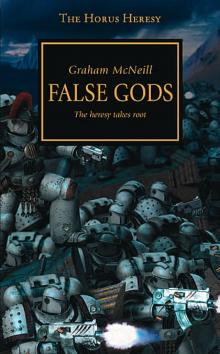 False Gods
False Gods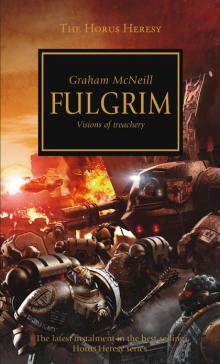 Fulgrim
Fulgrim Mechanicum whh-9
Mechanicum whh-9 Death of a Silversmith
Death of a Silversmith Iron Warrior
Iron Warrior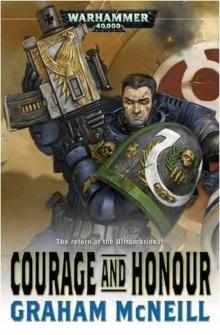 Courage and Honour w4u-5
Courage and Honour w4u-5![[Ultramarines 6] Chapters Due - Graham McNeill Read online](http://i1.bookreadfree.com/i1/03/30/[ultramarines_6]_chapters_due_-_graham_mcneill_preview.jpg) [Ultramarines 6] Chapters Due - Graham McNeill
[Ultramarines 6] Chapters Due - Graham McNeill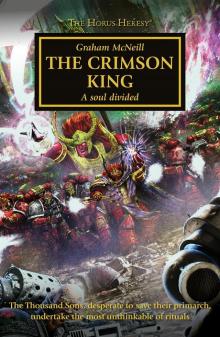 The Crimson King
The Crimson King 1 the ambassador
1 the ambassador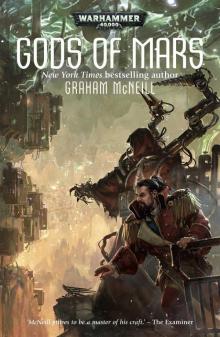 Gods of Mars
Gods of Mars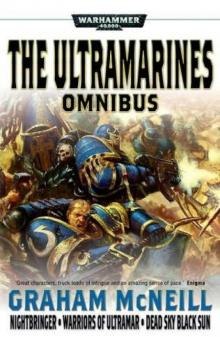 Ultramarines Omnibus (warhammer 40000: ultramarines)
Ultramarines Omnibus (warhammer 40000: ultramarines)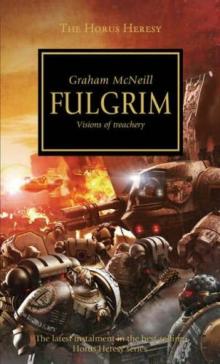 Fulgrim: Visions of Treachery whh-5
Fulgrim: Visions of Treachery whh-5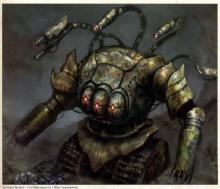 The Kaban Project (warhammer 40000: horus heresy)
The Kaban Project (warhammer 40000: horus heresy)![[Sigmar 02] - Empire Read online](http://i1.bookreadfree.com/i1/04/05/[sigmar_02]_-_empire_preview.jpg) [Sigmar 02] - Empire
[Sigmar 02] - Empire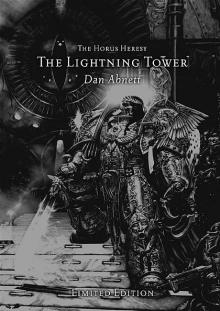 The Lightning Tower & The Dark King
The Lightning Tower & The Dark King Wolf Hunt
Wolf Hunt Killing Ground w4u-4
Killing Ground w4u-4![Warhammer - [The Ambassador Chronicles 02] - Ursun's Teeth Read online](http://i1.bookreadfree.com/i1/04/05/warhammer_-_[the_ambassador_chronicles_02]_-_ursuns_teeth_preview.jpg) Warhammer - [The Ambassador Chronicles 02] - Ursun's Teeth
Warhammer - [The Ambassador Chronicles 02] - Ursun's Teeth 01 - Heldenhammer
01 - Heldenhammer 02 - Empire
02 - Empire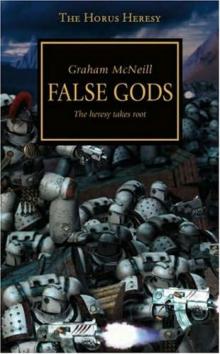 False Gods whh-2
False Gods whh-2